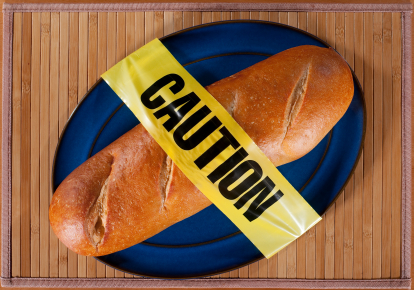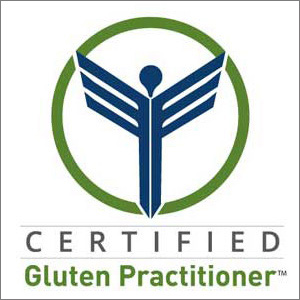 It seems that, every year – when January 1 rolls around – a lot of folks jump on the weight loss bandwagon.
It seems that, every year – when January 1 rolls around – a lot of folks jump on the weight loss bandwagon.
Maybe you’ve done this yourself, vowing that this is the year you will finally lose those stubborn last pounds.
In some circles, we’re told the only sure-fire way to lose weight is to stop eating gluten
This might come as a surprise to those of us who are already gluten-free, especially if we’ve made this choice for medical reasons such as Celiac Disease or Gluten Sensitivity.
(Often referred to as Non-Celiac Gluten-Sensitivity, or NCGS).
In other words, weight loss was likely the furthest thing from your mind when you first received a diagnosis that explained the myriad of health woes that had plagued you for years.
(There could even be one or two among you who were anxious to gain weight!)
So this whole thing about removing gluten from the diet in order to lose weight has me puzzled – in part because it has the unfortunate outcome of turning a serious medical condition – one that requires a special diet – into a fad.
Is losing weight really that simple?
Well, here’s what I think: you can decide to go gluten-free in an effort to lose weight, and you could in fact, be quite successful.
Then again, the whole thing could backfire.
And here’s why.
It All Depends On What You’re Eating
It doesn’t matter if you follow the Atkin’s Diet or the increasingly popular Paleo Diet – both are very low in carbohydrates, and thus gluten-free by default.
In other words, a low carbohydrate diet is an effective approach to weight loss, regardless.
If you simply replace your whole grain bread, pasta, cookies and crackers with their gluten-free counterparts, losing weight will continue to be a struggle.
It’s when you eliminate those foods completely that weight loss miracles really do happen.
At least, that’s what I’ve been told.
As someone who hasn’t entirely given up carbs (limiting myself to a few times per week) those results continue to be elusive.
If You’re Celiac, You Might Even GAIN Weight
The symptoms for someone with Celiac Disease are all over the map, and that includes being either overweight – or underweight.
In fact, some of the less fortunate among us sometimes look downright emaciated.
In the not-so-distant past that’s exactly what doctors were trained to look for – i.e if the patient presented as relatively healthy, with no obvious outward signs of digestive distress it couldn’t possibly be Celiac Disease.
Now we know better.
The truth of the matter is this: for a person diagnosed with Celiac Disease, who is severely underweight, there’s a good chance they might gain weight once the offending foods are removed from the diet.
(And chances are that’s exactly what they’re hoping for).
Oddly enough, the person with Celiac Disease who is overweight to begin with, will likely lose weight once the offending foods are removed the diet.
However, as stated above – once you add gluten-free bread, pasta and baked goods to your diet, the pounds will just creep back.
Junk Food is Junk Food
Just because a product is gluten-free doesn’t mean it is low in calories, or necessarily healthy.
The truth is, processed food is processed food, regardless.
In other words, it’s still junk food and was never meant to be part of a healthy diet.
More and more books are coming out on the subject – many written by highly acclaimed physicians – and the message is the same every time: unless you are primarily eating real, wholesome foods such as vegetables and fruits, nuts and seeds, legumes, grass-fed, organic meat and poultry, or wild-caught fish, you will never achieve optimal health.
Those sugar-laden treats are something to save for a special occasion.
And that’s where the Glycemic Index comes in.
The Glycemic Index is a means of measuring how quickly your blood sugar rises upon eating a particular food.
And the foods that have the greatest impact on your blood sugar are – no surprise, here – carbohydrates.
This is exactly what Dr. William Davis talks about in his much acclaimed book “Wheat Belly” – a must-read, by the way, if you haven’t already done so.
Your Environment Also Plays a Role
There are other factors that come into play when it comes to weight loss, and that includes toxic substances in your environment.
In fact, we even have a name for them: Obesogens
That’s right, these are chemicals that piggy-back onto many household products, that actually have the ability to interfere with your hard-won efforts at losing weight.
Sobering, to be sure, but also something you have absolute control over – at least when it comes to you home.
Want to know more?
Schedule a complementary 30-minute Healthy Life Strategy Session today, or contact me at karen@designahealthylife.com.
 Follow
Follow


Speak Your Mind